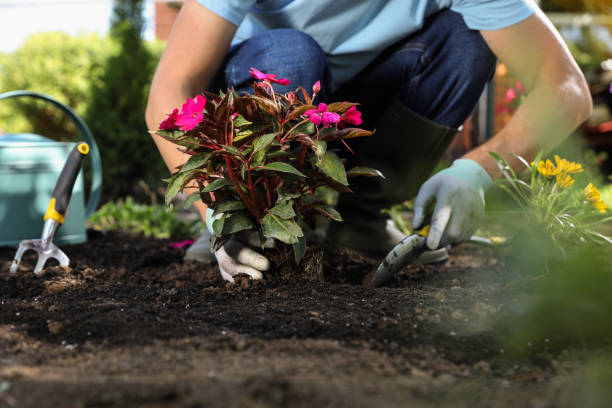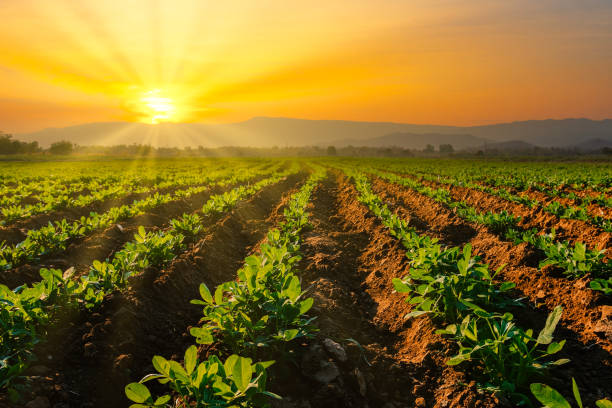Organic farming is more than just a trend ,more sustainable food production and a global movement towards living healthier and energetic.Chemicals in food and farming causes some harmful effects to the human system ,people are turning to organic farming as a natural,eco-friendly options.Will walk you through some step-by-step guidelines on everything you need to know to get started if you are a beginner and interested in growing crops in an organic way
WHAT IS ORGANIC FARMING ?
Organic farming is an agricultural method that relies on natural input and manageable techniques. Unlike farming that will harm or destroy the human system ,organic farming you should avoid the use of synthetic fertilizers,genetically modified organisms(GMOs),Chemical Pesticides,and artificial growth hormones.Instead, it is based on creating an environment for balanced ecosystem where the plant health and soil Fertility are naturally maintained.
The main and ultimate goal of organic farming is to produce food that will benefit people,environment and the animals.This helps in working with nature not against it .

Key Principles of Organic Farming
If you want to become an organic farmer,it’s important to understand the guiding principles of the practice:
1.Animal Welfare
When animals are raised on the farm,it is supposed to be treated humanely,given access to pasture,also should be fed with organic feed.No growth hormones or antibiotics are used .
2. Soil Health
A Healthy soil is the foundation of successful organic farming.Instead of you using chemical fertilizers organic farmers use compost, green manure, and natural soil enhancers to improve soil fertility and structure. A well-maintained soil ecosystem leads to healthier crops and better yields.
3. Biodiversity
The good thing about Organic farming is it often grows to variety of crops and raise different types of animals to promote biodiversity. This also helps to reduce pests and diseases naturally while supporting a resilient ecosystem.
4. Natural Pest and Weed Control
Chemical pesticides are strictly avoided in organic farming. Organic farmers mostly rely on natural methods like introducing beneficial insects, using neem oil or garlic spray, intercropping, and also crop rotation to control pests and diseases. Weeds are controlled through mulching, hand-weeding, and cover crops rather than herbicides.
Starting Your Organic Farm: Step-by-Step
1. Start Small
As a beginner, it’s best to start with a small garden or plot. This enables you to check and test the soil, learn from trial and error, and gradually gain hands on experience without feeling overwhelmed.
2. Choose the Right Location
Your farm should have:
-
Access to clean water
-
Good sunlight exposure
-
Well-draining, nutrient-rich soil
Before planting, check your soil’s pH and nutrient levels to determine what improvements it may need as stated before
3. Build Healthy Soil
Use organic matter like compost, aged manure, or worm castings to enrich your soil. Plant cover crops like legumes (e.g., cowpea, groundnut) to fix nitrogen naturally. Avoid tilling too frequently, as it can disturb soil microbes and structure.And avoid using chemicals
4. Select Suitable Crops
Below are some crops that are well-suited to your climate and soil type. Common beginner-friendly crops include:
-
Tomatoes
-
Lettuce
-
Beans
-
Okra
-
Carrot
-
Maize
Use non-GMO, untreated seeds — these are available at many agricultural supply stores or organic farming cooperatives.
Organic Pest and Disease Management
Pests and diseases are a natural part of farming. In organic farming, prevention is more important than cure. Below are some organic strategies:
-
Neem oil spray: A natural pesticide that repels many insects.
-
Companion planting: Growing certain crops together to deter pests.
-
Intercropping: Reduces pest spread and makes it harder for insects to find host plants.
-
Crop rotation: Prevents buildup of crop-specific pests and diseases.
You can also introduce beneficial insects like ladybugs or praying mantises to help control harmful pests.
Weed Management Without Chemicals
Weeds compete with crops for nutrients, water, and sunlight. In organic farming, use these methods:
-
Mulching: Covering the soil with leaves, straw, or compost to suppress weed growth.
-
Hand weeding: Simple and effective, especially on small farms.
-
Cover cropping: Growing fast-growing plants to crowd out weeds during off-seasons.
Record Keeping and Planning
Good record keeping is vital for organic farming. Keep notes on:
-
Planting and harvest dates
-
Pest and disease outbreaks
-
Inputs used (compost, natural sprays, etc.)
-
Soil test results
-
Do You Need Organic Certification?
If you plan to sell your produce as “certified organic,” you’ll eventually need to meet specific organic standards and undergo inspections. However, certification is not mandatory when starting. Focus first on practicing the principles — you can apply for certification later when your farm is more established.
In Ghana, for example, organic certification may be handled by organizations like Ecocert, Control Union, or local regulatory bodies.
Challenges to Expect
Like any farming method, organic farming comes with challenges:
-
Lower yields at the beginning
-
More labor-intensive methods
-
Pest outbreaks that require close attention
-
Need for ongoing education
But the rewards — healthier food, safer environments, and long-term sustainability — are well worth the effort.
Conclusion
Organic farming is a powerful way to grow food naturally while protecting the environment and improving human health.
-
-

